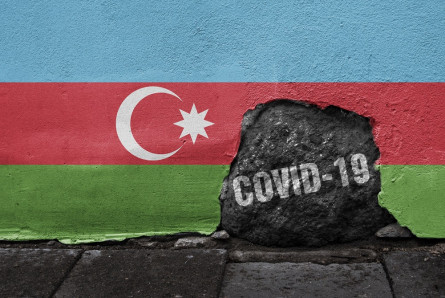Azerbaijan: Shrinking oil revenues, rising number of people in need
Azerbaijan was in a very special situation when the pandemic hit the country in early spring 2020. The country has about 10 million inhabitants, and its state budget heavily relies on oil revenues (roughly 50%). This oil dependency was a curse and a blessing at the same time: When the global economy crashed in 2020, so did the price for crude oil. Accordingly, Azerbaijan’s oil revenues diminished dramatically, and the state deficit rose rapidly, while the government had just rolled out an AZN 3.3 billion (1.6 billion EUR) aid package to mitigate the pandemic’s side effects. In order to meet the budget demands, the government withdrew AZN 850 million from the State Oil Fund (which is worth about US$ 43 billion).
So this is what Azerbaijan’s government spent the aid package on up until the end of September 2020):
- They compensated formal employees for wage losses (215,000 persons in April and May, 228,000 in August and September 2020).
- Low-income micro-entrepreneurs received cash support of up to AZN 5,000 (about 160,000 persons as of mid-August 2020)
- Unemployed and low-income informal workers received cash transfers (600,000 persons in spring, 270,000 persons in summer 2020)
- The government created 90,000 public jobs in a job creation scheme.
In his essay for the CRC 1342 Covid-19 Social Policy Response Series, Farid Guliyev concludes, that the government response was swift, but insufficient. He points to the main shortcomings of the aid package:
- The benefits were too low – the cash transfers to the unemployed and informal workers equalled AZN 6.3 (3 EUR) per day which is not enough to make end meet.
- Many informal workers and the 670,000 migrant workers (mainly in Russia) were not covered by the measures.
"There seems to be an urgent need to improve reporting and accounting standards for data collection in Azerbaijan. The social program schemes would have benefitted from incorporation of monitoring and evaluation mechanisms; developing such mechanisms would allow better design and targeting of social assistance policies in the future", Guliyev concludes in his essay.
Read the full essay: Azerbaijan’s Social Policy Response to Covid-19: Swift Response, Modest Benefits
See the other parts of the series: CRC 1342 Covid-19 Social Policy Response Series














